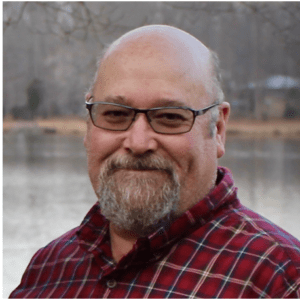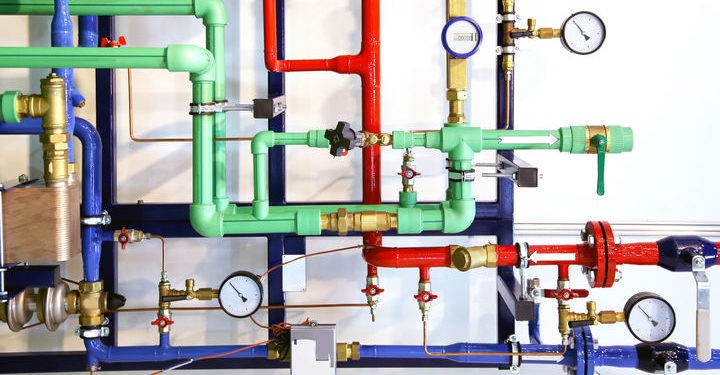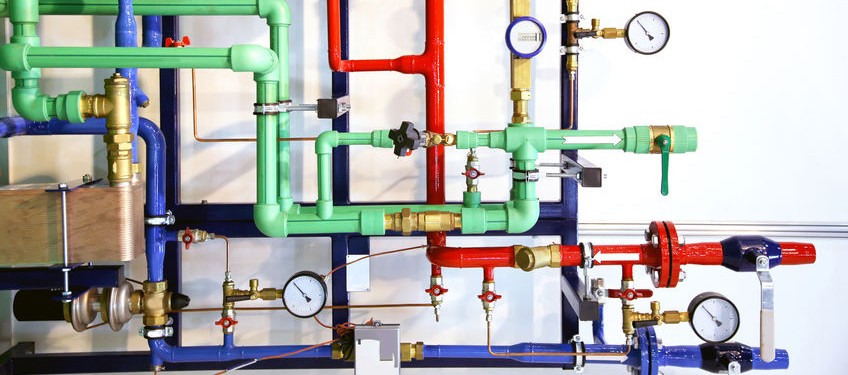While I’m not a psychotherapist or anywhere close to an expert in family systems theory, I’m finding some clarity in applying what little I do know to our current societal predicaments.
It goes something like this: Pressure begins to build in a system, not unlike the pressure one might imagine in a cooling or heating system. If the pressure becomes too great, at some point it blows at a particular joint, hose or fixture. All attention is directed to the pressure release point, often with little regard for the actual cause of the pressure. Replacing the leaking part without attending to the source of the pressure likely will not result in full restoration of the system.

Sam Harrell
In family systems theory, the pressure release point is generally referred to as the “identified patient,” like a child acting out, a parent drinking too much or chronic anxiety expressed by a family member. The behavior of the identified patient is rarely the underlying problem, however, just what gets a family into the therapist’s office to, hopefully, attend to underlying issues. Those issues or pressures may result from a particular dysfunction or disorder, a shift or change in circumstance, environmental factors or a specific trauma that ultimately manifests as disruption in the family balance (homeostasis).
Scanning the horizon of our North American predicament reveals numerous examples of “acting out.” Failed politics and an out-of-control partisan pendulum (wrecking ball), our shift from global leadership to bullying, demonstrations and riots met with brutality, economic turmoil and unprecedented income/wealth disparities, to name a few. Let’s not forget disasters that are now beginning to appear more manmade than natural. Yes, and all that in the context of a global pandemic; however, I would argue that COVID-19 is itself more a symptom than a primary source pressure.
So what might be the source(s) of these systemic pressures? For one, racism and the related “isms” of oppression. At some point, the “chickens come home to roost” as Malcom X said, and in order for a wound to be healed and the climate of hate dissipated, the knife has to be acknowledged and removed. Folks far more able and articulate than I have in recent days shed much light on these systemic injustices. But I believe there is still a more fundamental issue.
“We’re killing ourselves and others for ‘more.’”
More. Yes, MORE. We’re killing ourselves and others for “more.” More power, more dominance, more wealth, more privilege, more control. And more stuff. It’s no surprise that “more” is a common denominator in most of what Christianity has labeled the capital vices or “seven deadly sins.” Think of it. Greed, envy, lust and gluttony and even sloth. All center around “more,” leaving me to wonder if this might be our original sin.
Nowhere is this more evident than in our treatment of the community of all creation into which we are all born. Global populations continue to swell toward unsustainable numbers, not because some of us are “rabbits,” but because poverty and infant mortality in parts of our world counterintuitively drive such growth. Evidence the world over suggests that when basic needs are met (health, safety, shelter, food, education and work), family size stabilizes. And so does global migration. In her poem “Home,” Kenyan-born Somali poet Warsan Shire states, “No one leaves home unless home is the mouth of a shark.”
The fact is, our part of the world in particular is using way more than our share of the earth’s allotted resources. According to Earth Overshoot Day, the United States used up our annual “earth budget” on March 14 of this year. That means that for the remainder of the year we’ll be using resources that belong to others, even future generations. If everyone on earth lived like us, we would need 4.6 earths and, as we are quickly learning, nature cannot operate at a perpetual deficit. Species extinction is at an all-time high with 25% of the world’s biodiversity now threatened. Some would argue that we are next. Something has to change.
“If everyone on earth lived like us, we would need 4.6 earths.”
We need to start paying attention to our family members here and in our larger orbit. Brother Sun is acting out, scorching forests at an unprecedented rate. Our First Nations sister doesn’t feel like we listen to her — she too, especially, has something to teach us that tech-driven society has forgotten. Our mother on the border is desperately seeking to be reunited with her child, illegally separated from her by “The Law.” Our dad has given his life for the church, and few people come anymore.
Yet, we are a people of faith. We believe in the God of the downtrodden, the God of the least of these and the voiceless. We are saved by and follow after the way of Jesus, who commanded us to love our neighbor, even our enemies — not to cause their marginalization.
The pipes are bursting. Are we just going to replace the broken parts in November or will we, with God’s help, begin to heal our system by relinquishing, repenting and stopping our perpetual accumulation and consumption project? The abundant life promised by Jesus doesn’t mean “more”; it means freely available and enough for everyone.
Sam Harrell serves as associate coordinator of global missions for the Cooperative Baptist Fellowship, facilitating the work of field personnel in 20 countries. He and his wife, Melody, have three grown sons. Sam is passionate about the environment and spends much of his free time as close to the land as possible — birdwatching, hiking, beekeeping — and advocating for creation care.


